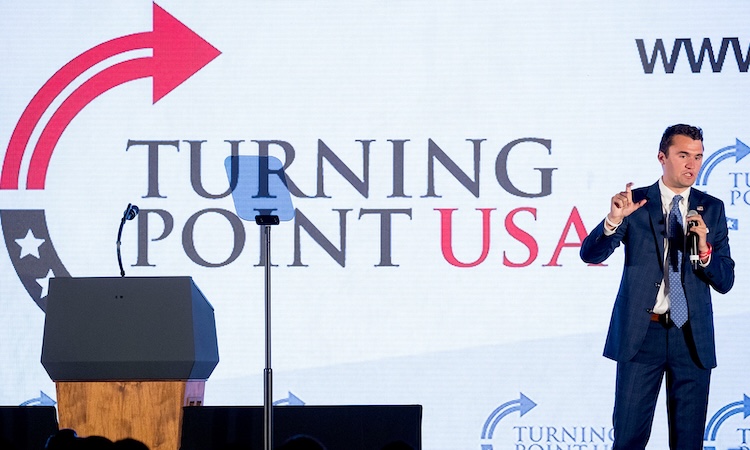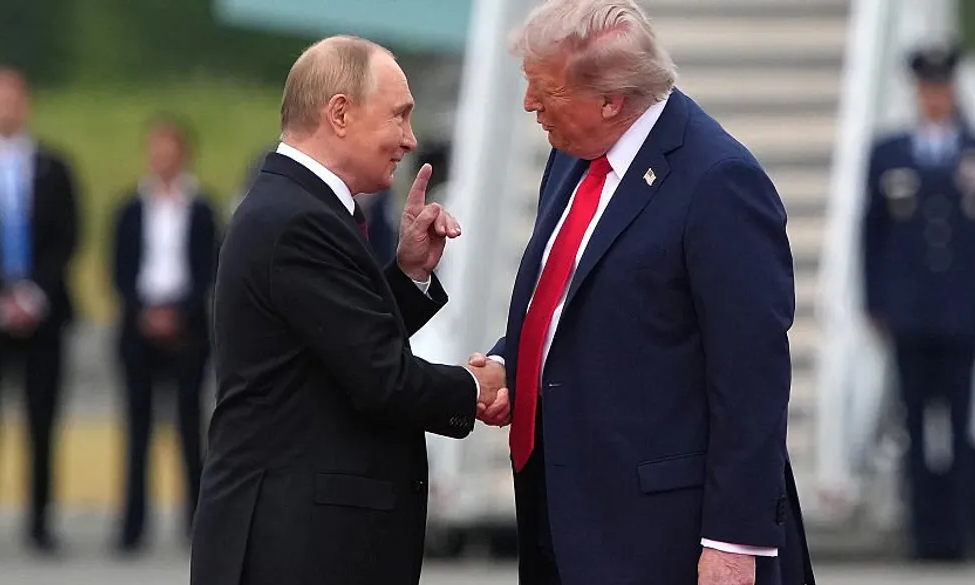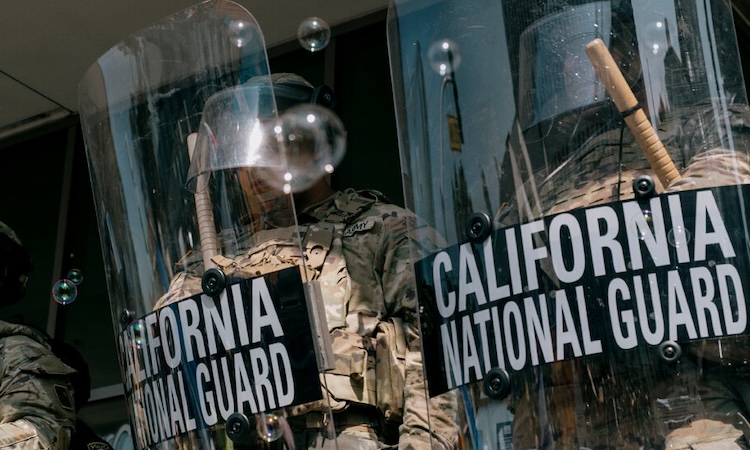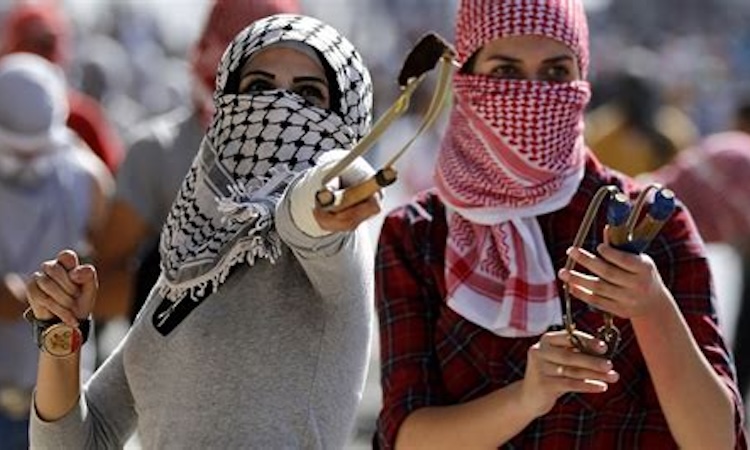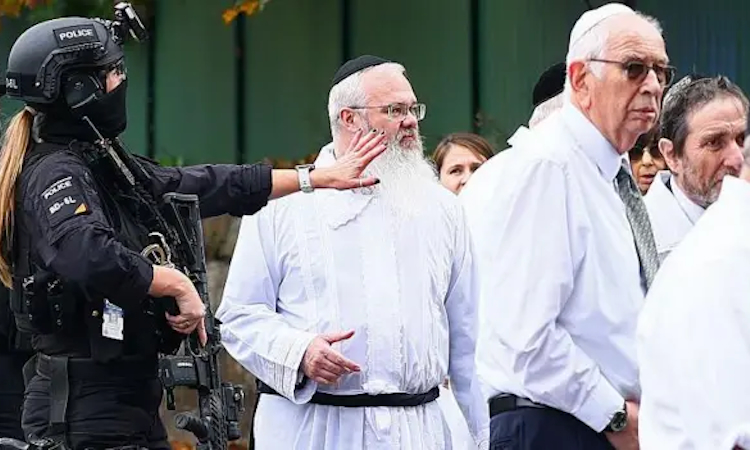The United States ruling class was turned upside down over the killing of UnitedHealth CEO Brian Thompson. The murder was almost professional in its execution: when the killer’s gun jammed during the firing, he calmly unjammed and resumed fire.
“Deny. Defend. Depose.” These words, scratched into the shell casings found by Mr Thompson’s body, refer to the way that US insurance companies escape their obligations to provide healthcare to the insured. The corporations have a deliberate strategy of delaying making payment on a claim for healthcare costs, then denying the validity of the claimant’s coverage, then defending their decisions if they should be challenged in court. This has been found to be a surefire method of increasing their profits at the expense of their clients, many of whom suffer bankruptcy, death or both as a result.
The media uproar that followed Thompson’s shooting was not the usual reaction to a shooting in New York city (NYC). Too many people are gunned down every day for this to make the headlines in itself. The furore arose over the shooting of a member of the bourgeoisie.
Living as we do in a class society, in which the bourgeoisie wields the state as a weapon against the working class, the hysterical presstitute media coverage inflated the case into a national sensation, and a very public manhunt was conducted for the shooter. Suspect Luigi Mangione was eventually captured, but imperialist society was shaken to the core by the response of significant sections of the American public to the assassination.
A combination of widespread hatred for American insurance companies coupled with Mangione’s handsome figure even led Fox News to air a segment with a ‘dating expert’ to discuss “Why are women obsessed with Luigi Mangione?” All of which has helped turned the assassin into a hero of sorts.
Imperialist response
The TikTok social media platform, typically used by younger users, saw an explosion of videos from US citizens declaring their satisfaction with Thompson’s assassination. The ecstasy on display shocked the American bourgeoisie to its core, and panicked executives responded by removing their profiles from corporate websites.
“UnitedHealthcare ripped down its ‘about us/leadership’ webpage, which had previously featured Thompson’s photo and bio, soon after the Wednesday murder,” reported the New York Post on 7 December.
And this affinity with the assassination was not confined to social media. The Daily Mail reported on 11 December that what it called “dystopian” ‘wanted’ posters of other top health CEOs had appeared on walls in New York city.
“The menacing posters were erected on Canal Street – one of Manhattan’s busiest thoroughfares – flanked with the red and black words: ‘Wanted. Denying medical care for corporate profit. Healthcare CEOs should not feel safe.’ … The NYPD said that menacing users are posting ‘that it is a hitlist and that CEOs should be afraid’.”
The University of Yale (aka factory for liberal brainwashing) wailed: “In the aftermath of UnitedHealthcare CEO Brian Thompson’s murder in Midtown Manhattan, the most popular posts on social media are ones which express support if not ecstasy over the brazen assassination.
“In fact, UnitedHealthcare’s own bereavement message online was cruelly mocked by 77,000 laughing response posts, SNL ran into massive viewer blowback after they ran a skit mocking the response to the murder, and the etchings on the coldblooded murderer’s bullet casings of ‘deny, defend, depose’ have become rallying cries for many, all while the investigation of the coldblooded murder has been impeded by those sympathetic to the murderer’s outrage.
“I have studied CEO and business leadership for 40 years, and such dancing on the grave of a murdered business executive is one of the most abhorrent things I have ever seen. This vitriol and violence against business and business leaders is plainly un-American.” (A very un-American response to the murder of Brian Thompson by Jeffrey Sonnenfeld and Steven Tian, 9 December 2024)
Most people who file for medical bankruptcy have insurance
Dr David Himmelstein, public health professor at City University of New York, medical lecturer at Harvard and lead author of a study on medical bankruptcy, told the Guardian: “A lot of people, a little over 60 percent, are filing for bankruptcy at least in part because of medical bills. Most of them are insured. It’s clear that, despite health insurance, there are many, many people incurring costs not being covered by their insurance.
“Medical debt is incredibly common, it’s the main cause of calls from collection agencies, and the vast majority of people with it have insurance.” (‘I live on the street now’: how Americans fall into medical bankruptcy by Michael Sainato, 14 November 2019, our emphasis)
According to an Economic Policy Institute article: “A recent Harvard university study found that 62 percent of personal bankruptcies resulted in part from medical costs, and some 78 percent of those people who filed for bankruptcy had health insurance, in most cases private coverage.” (Insured … and broke, 14 July 2009)
Imperialist ‘culture’, Saw VI and the torture of healthcare CEOs
Horror movie Saw VI was released 16 years ago, in 2009. As imperialist society increasingly tends toward barbarism, the Saw series is essentially torture pornography, and what passes for culture in imperialist society. People are forced to commit sadistic acts against themselves or others under the threat of death.
What sets Saw VI a smidgen apart is the motivation for the victims of the torture it depicts.
The film shows a health insurance executive, William Easton, and his associates, whose company’s dubious business policy was to turn down their clients’ coverage for medical treatment, one of them being John Kramer (the one organising the torture and murder ‘games’). Easton and co work for ‘Umbrella Health’ (a seeming reference to United Health):
***
HAROLD: “I don’t get it. I’ve been with this insurance for over ten years.”
EASTON: “I know Harold. Unfortunately, when we reviewed your claim we discovered you didn’t mention a previous condition.”
HAROLD: “What condition?”
EASTON: “It says here you had oral surgery to remove a cyst from your jaw.”
HAROLD: “This is absurd. It has nothing to do with some oral surgery I had 30 years ago.”
EASTON: “Any type of oral surgery is going to leave scar tissue. Scar tissue can lead to gum disease which you well know can cause heart disease.”
HAROLD: “You know what, you’re a criminal. You are a God damn criminal. I paid my monthly premium for ten years without so much as a cold. And now that I’m actually sick, you’re going to deny my coverage. I have a family!”
EASTON: “Those are the rules! I’m sorry but your own actions caused this.”
HAROLD: “You’ve just given me a death sentence. Who’s going to cover me now? You just killed me.”
***
This is not a recommendation to watch Saw VI, but it does give some insight into how generalised the hatred towards health insurance companies has become that they should have been depicted as “righteously tortured” in pop culture a decade and a half ago. Indeed, clips of those scenes have gone viral for a second time following the assassination.
Operation Gladio and Nato terror against the working class
Operation Gladio was a programme that ran throughout western Europe during the cold war. Under the flimsy pretence of ‘preparing in case of a Soviet invasion’, Nato armed fascist terrorists and coordinated them in committing indiscriminate massacres such as the Bologna train bombing. These were then falsely blamed on communists in order to maintain a ‘strategy of tension’ and justify authoritarian measures.
“You were supposed to attack civilians, women and children. Innocent people outside of the political arena. For one simple reason: to force the Italian public to turn to the state, turn to the regime and ask for greater security.” (BBC TimeWatch, Operation Gladio, False Flag Terrorism, 1992)
We note in this light that the USA has recently been hit by a spate of seemingly random terror attacks, besides the Thompson shooting. One was committed by Matthew Livelsberger, who exploded a Tesla truck outside the Trump International hotel in Las Vegas on New Year’s Day.
On the same day, one Shamsud-Din Jabbar drove a truck into shoppers in New Orleans, killing 14 people and injuring over 50 more. The motivations for these attacks remain extremely unclear.
What is known, however, is that both men were employed at Fort Bragg, a US psychological warfare military facility. This has led some to speculate that both attacks were staged as false flags with the same aim as those of Operation Gladio – to terrorise civilians into demanding, or at least accepting, heightened security measures ‘for their own protection’. Certainly, there are aspects of the story as told in the corporate media that don’t seem to add up.
Anarchistic assassinations and terror in the working-class movement
It is worth noting that the imperialist ruling classes have long utilised anarchists as well as fascists and military personnel for such provocations. Planners for Cointelpro (the FBI’s vicious ‘counter intelligence programme’) in the late 1960s wrote: “The anarchists’ point of view is the most disruptive element in the New Left and should be capitalised on in the most confusing ways.” (See Ben Norton, Geopolitical Economy, 15 October 2021)
The use of terror and assassination in politics are particularly associated with the rebellious sections of the petty bourgeoisie, who tend to veer wildly between extremes but who lack the scientific understanding, faith in the working class, and steady discipline required for sustained struggle and perseverance under adverse conditions.
As VI Lenin wrote a century ago: “Little is known in other countries of the fact that Bolshevism took shape, developed and became steeled in the long years of struggle against petty-bourgeois revolutionism, which smacks of anarchism, or borrows something from the latter and, in all essential matters, does not measure up to the conditions and requirements of a consistently proletarian class struggle.
“Marxist theory has established – and the experience of all European revolutions and revolutionary movements has fully confirmed – that the petty proprietor, the small master (a social type existing on a very extensive and even mass scale in many European countries), who, under capitalism, always suffers oppression and very frequently a most acute and rapid deterioration in his conditions of life, and even ruin, easily goes to revolutionary extremes, but is incapable of perseverance, organisation, discipline and steadfastness.
“A petty bourgeois driven to frenzy by the horrors of capitalism is a social phenomenon which, like anarchism, is characteristic of all capitalist countries. The instability of such revolutionism, its barrenness, and its tendency to turn rapidly into submission, apathy, phantasms, and even a frenzied infatuation with one bourgeois fad or another – all this is common knowledge.”
And further: “Anarchism was not infrequently a kind of penalty for the opportunist sins of the working-class movement.” (‘Left-Wing’ Communism: an Infantile Disorder, 1920, Chapter 4)
Lenin pointed out very early in his career that such terrorists had a lot in common with the economists (who prioritised the economic struggle against the employers over the political struggle against capitalist relations), since they both operated on the basis of spontaneity rather than being guided by a scientific understanding.
“The economists and the present-day terrorists have one common root, namely, subservience to spontaneity …
“At first sight, our assertion may appear paradoxical, so great is the difference between those who stress the ‘drab everyday struggle’ and those who call for the most self-sacrificing struggle of individuals. But this is no paradox. The economists and the terrorists merely bow to different poles of spontaneity; the economists bow to the spontaneity of ‘the labour movement pure and simple’, while the terrorists bow to the spontaneity of the passionate indignation of intellectuals, who lack the ability or opportunity to connect the revolutionary struggle and the working-class movement into an integral whole.
“It is difficult indeed for those who have lost their belief, or who have never believed, that this is possible, to find some outlet for their indignation and revolutionary energy other than terror. Thus, both forms of subservience to spontaneity we have mentioned are nothing but the beginning of the implementation of the notorious Credo programme: Let the workers wage their ‘economic struggle against the employers and the government’ … and let the intellectuals conduct the political struggle by their own efforts – with the aid of terror, of course!” (VI Lenin, What Is to Be Done?, 1901, Chapter 3, our emphasis)
As Lenin pointed out many times, the essence of such activism was a marked lack of faith in the masses:
“But just read the whole leaflet and you will see that the protestation in bold type takes the name of the masses in vain. The day ‘when the working people will emerge from the shadows’ and ‘the mighty popular wave will shatter the iron gates to smithereens’ – ‘alas!’ (literally, ‘alas!’) ‘is still a long way off, and it is frightful to think of the future toll of victims!’
“Do not these words ‘alas, still a long way off’ reflect an utter failure to understand the mass movement and a lack of faith in it? Is not this argument meant as a deliberate sneer at the fact that the working people are already beginning to rise?
“And, finally, even if this trite argument were just as well-founded as it is actually stuff and nonsense, what would emerge from it in particularly bold relief would be the inefficacy of terrorism, for without the working people all bombs are powerless, patently powerless …
“The present-day terrorists are really ‘economists’ turned inside out, going to the equally foolish but opposite extreme.” (Revolutionary adventurism, Iskra, August 1902)
Our tasks
Of course, we know that the capitalist system and the bourgeois state terrorise and humiliate working-class and oppressed people on a daily basis to keep them in submission and under control.
Both at home and abroad, the working masses are endlessly disciplined and terrorised by the rule of capital. Terrorised by war and economic exploitation. Terrorised by insecurity and the threat of hunger and poverty, homelessness and joblessness. Terrorised by the threat of jail or of social services taking their children if they resist. Terrorised by a dissolute culture that pollutes their minds and commodifies their bodies.
In the face of all this, Marxist-Leninists cannot be pacifists, but we consistently reject and repudiate ‘individualist terror’. Not on moral or ethical grounds, not because we do not wish to strike terror into the hearts of the enemy class – but because individual terror does more harm than good to the cause we seek to serve.
“In principle we have never rejected, and cannot reject, terror. Terror is one of the forms of military action that may be perfectly suitable and even essential at a definite juncture in the battle, given a definite state of the troops and the existence of definite conditions.
“But the important point is that terror, at the present time, is by no means suggested as an operation for the army in the field, an operation closely connected with and integrated into the entire system of struggle, but as an independent form of occasional attack unrelated to any army. Without a central body and with the weakness of local revolutionary organisations, this, in fact, is all that terror can be.
“We, therefore, declare emphatically that under the present conditions such a means of struggle is inopportune and unsuitable; that it diverts the most active fighters from their real task, the task which is most important from the standpoint of the interests of the movement as a whole; and that it disorganises the forces, not of the government, but of the revolution.
“We need but recall the recent events. With our own eyes we saw that the mass of workers and ‘common people’ of the towns pressed forward in struggle, while the revolutionaries lacked a staff of leaders and organisers. Under such conditions, is there not the danger that, as the most energetic revolutionaries go over to terror, the fighting contingents, in whom alone it is possible to place serious reliance, will be weakened? Is there not the danger of rupturing the contact between the revolutionary organisations and the disunited masses of the discontented, the protesting, and the disposed to struggle, who are weak precisely because they are disunited?
“Yet it is this contact that is the sole guarantee of our success. Far be it from us to deny the significance of heroic individual blows, but it is our duty to sound a vigorous warning against becoming infatuated with terror, against taking it to be the chief and basic means of struggle, as so many people strongly incline to do at present.
“Terror can never be a regular military operation; at best it can only serve as one of the methods employed in a decisive assault. But can we issue the call for such a decisive assault at the present moment?” (Where to begin? by VI Lenin, Iskra, May 1901, our emphasis)
Individualist acts of terrorism are not a constructive part of the class struggle for political and economic power; the imperialist designers of Operation Gladio knew well that such acts are more likely to turn workers against our movement than to bring them towards it. And because they create fear and distrust of the perpetrators amongst workers, they strengthen the ruling class’s ability to reduce workers’ rights and repress their independent political activity – all in the name of ‘keeping the public safe’ and ‘defending democracy’.
Such methods are favoured by those who have no knowledge of Marxist theory and organisation and no faith in the working class as the motive force of history.
Communists, on the other hand, understand that the only real path to victory lies in connecting the advanced section of the working class to Marxist theory, uniting this theoretically-trained advanced guard in a disciplined organisation, and harnessing the power thus created to the entire proletariat so it can take on and defeat the bourgeoisie and destroy its bloodthirsty, decadent and parasitic system for good.


